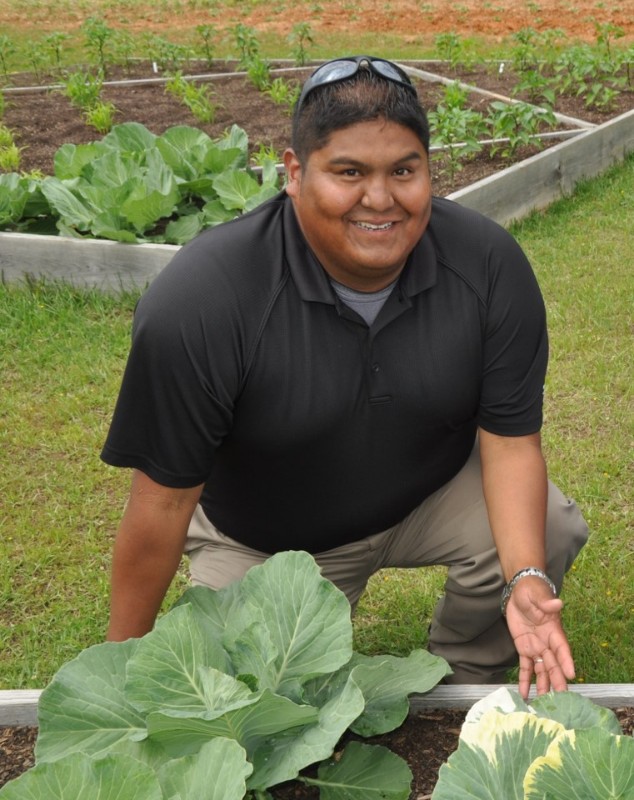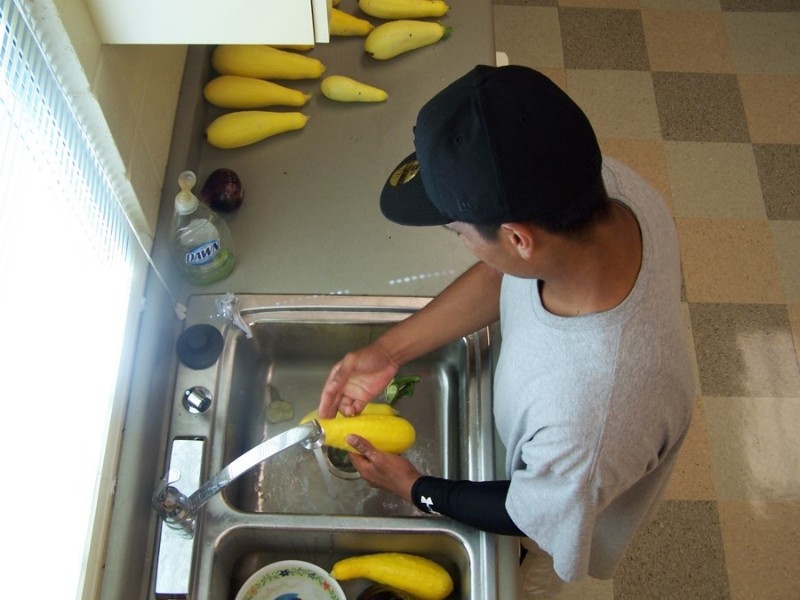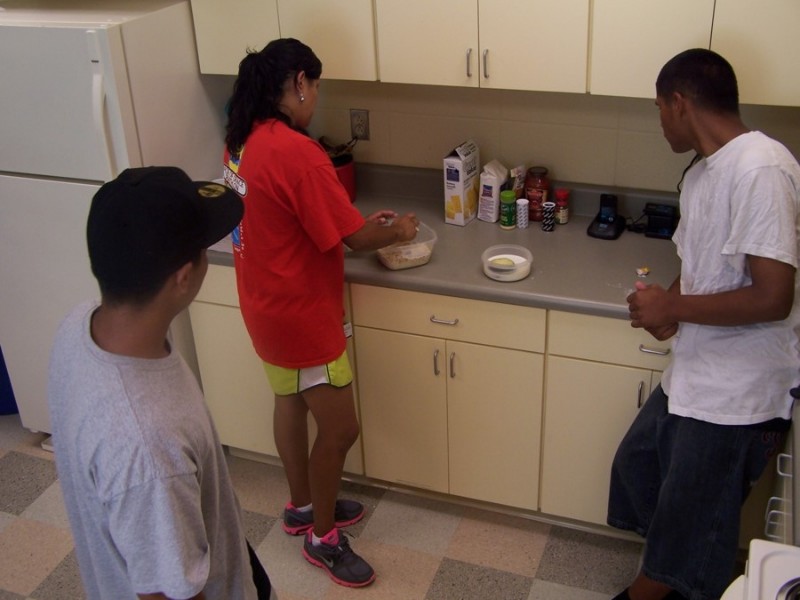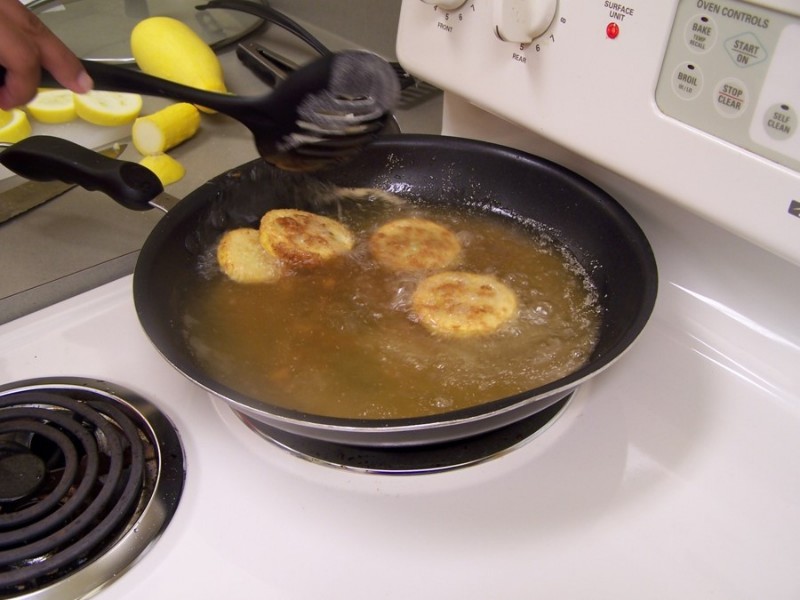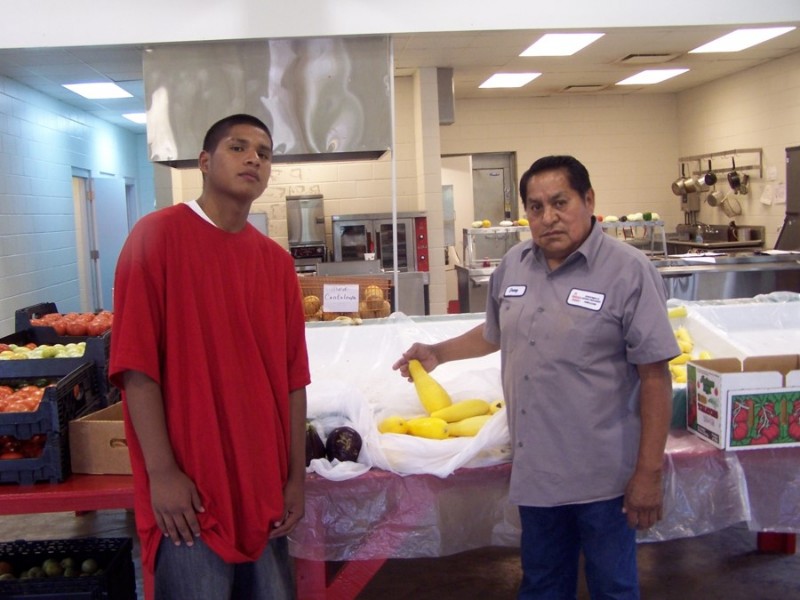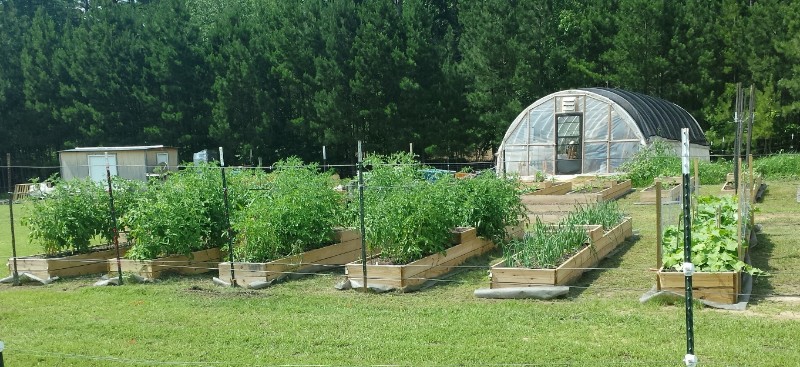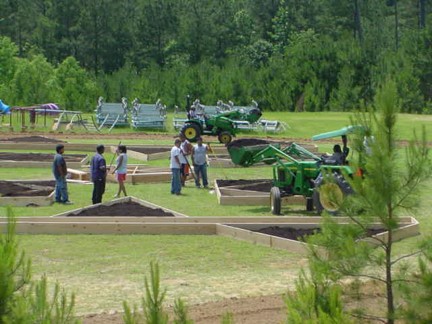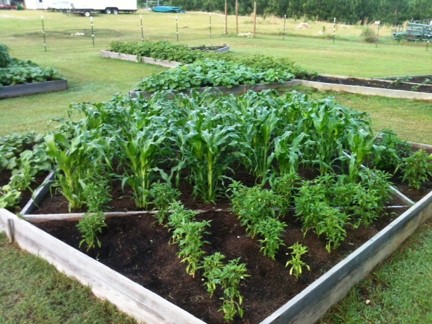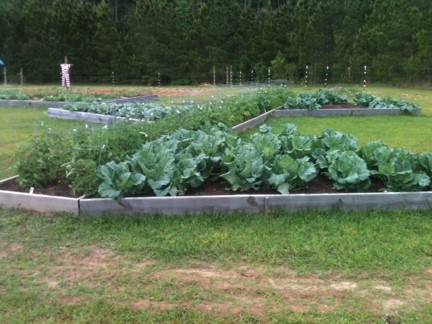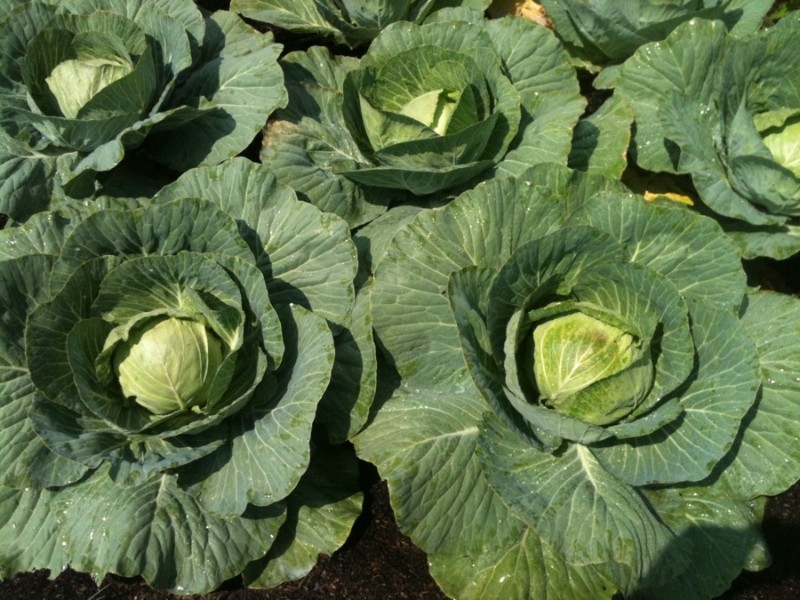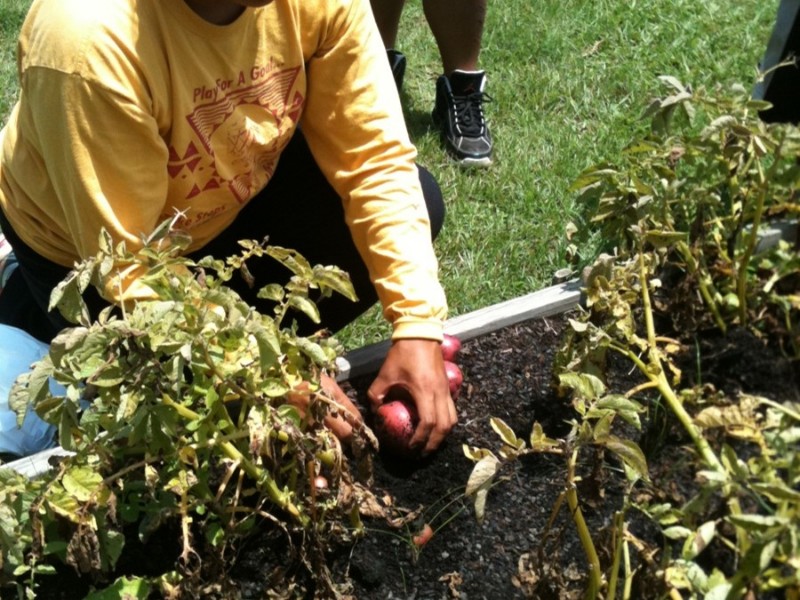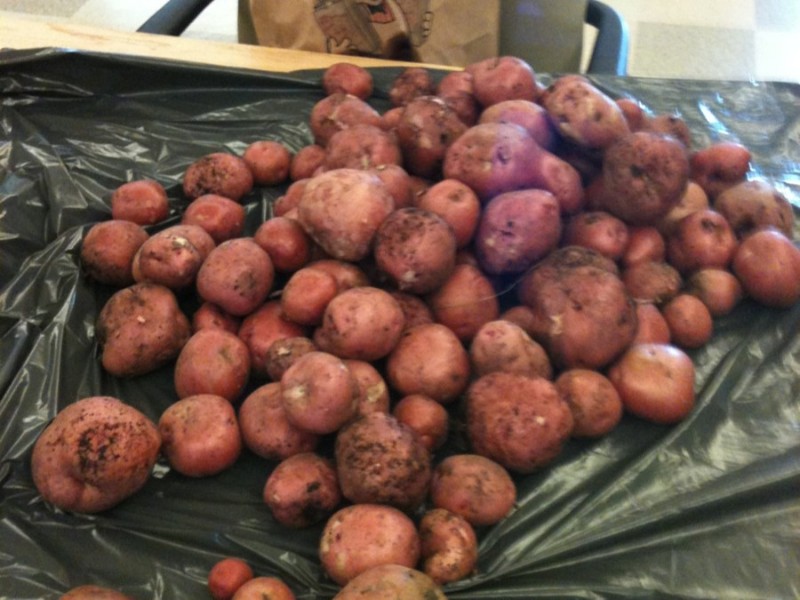
NAICJA1

NAICJA2

NAICJA11

NAICJA12

NAICJA13

NAICJA14

NAICJA15

20140612_152200

NAICJA3

NAICJA4

NAICJA5

NAICJA6

NAICJA7

NAICJA8

NAICJA9

NAICJA10
Place Category: Specialized Court Projects
- MISSISSIPPI BAND OF CHOCTAW INDIANS OSAPAUSI AMASALICHI (LITTLE GARDEN OF HEALING)
- PROGRAM DESCRIPTION
- PLANNING & IMPLEMENTATION
- PROGRAM OUTCOMES
Summary: Osapausi Amasalichi (which translates into “I get healing from that little garden”) provides a purposeful, positive and cultural intervention for youth offenders at the Mississippi Band of Choctaw Indians (MBCI). Whether on probation or being transitioned from the Choctaw Youth Justice Center (detention) back into the tribal community from the Transitional Living Center, the youth work under the supervision of Court Services staff and elders from the tribal communities in raised bed garden plots, a hoop house containing an aquaponics demonstration project, or amended soil for “the three sisters”. Originally funded through an OJJDP Demonstration grant as one of three Green Reentry pilot programs, youth find an opportunity to heal physically, mentally, socially and spiritually through learning to grow traditional foods and explore other sustainable practices. Produce is often used to supplement youth and adult detention center meals as well as sold at the Choctaw Farmer’s Market with proceeds being used to perpetuate the garden. Portions of the yield (usually the first harvests) are also gifted to elders in need. In addition to the garden itself, youth participate in other cultural crafts and learn about the benefits of traditional foods. Outcomes of the project are to develop stronger connections for youth with their native culture and community.
Tribe:
Mississippi Band of Choctaw Indians
Contact:
Daniel Mittan, Director of Court Services
Phone (601) 663-7822
Fax number (601 663-7821
Email address [email protected]Mississippi Band of Choctaw Indians
P.O. Box 6434
Choctaw, MS 39350
www.choctaw.orgProgram Running Length:
2009 (1st year for planning & hiring grant-funded staff) 2010 – 2014 (grant funded) 2015 – 2016 (suspended after the last growing season). Court Services re-focused on “Juvenile Justice System Reform” when in 2013 the Tribe was selected by the Annie E. Case Foundation to be the first Tribal site for the Juvenile Detention Alternatives Initiative (JDAI). This involved more time and effort focused on the system (code revision, developing risk assessment instruments and making data-driven decisions, rather than implementing programs. Like so many Probation Offices across the country, and especially in Indian Country – there are limited financial and personnel resources. The only solutions other than obtaining an increase in our budget seem to be to engage our communities in a much larger way. The “Osapausi Amasalichi” program can be operable again by engaging Elders and volunteers that are willing to invest in the youth of the Tribal Youth Court.
Location:
MBCI is in Eastern Mississippi (5 miles West of Philadelphia, MS). The garden is 1 acre located adjacent to the Transitional Living Center for youth and the Choctaw Justice Complex.
Land Characteristics:
The MBCI reservation spans more than 35,000 acres across 10 different counties. There are eight (8) communities in Mississippi and one (1) near Henning, TN. Pearl River is the largest of the communities and the location for the Tribal Government Headquarters.
Population:
The MBCI has 11,000 enrolled tribal members.
The purpose of this project is to prevent and further control delinquency with the development of a demonstration program, using environmentally sustainable activities and green technologies as a platform to deliver services, through a partnership with Mississippi State University, while promoting culturally significant and relevant Choctaw ways. Activities begin in detention and continue through reentry. Comprehensive assessments, counseling and therapy, and community gardening with other identified green and culturally relevant technologies will achieve the project’s goals and objectives.The garden is available for juveniles sentenced to probation that can perform assigned Community Service hours under court supervision, those housed in the Transitional Living Center after leaving detention and for youth who are at-risk of entering into the juvenile system.The garden was born in 2009 out of the OJJDP’s Green-Reentry Demonstration Grant which aimed to offer innovative and therapeutic alternatives for youth on probation and youth who were recently released from the detention facility.The project’s major goals are: strengthening the youth, their family and community by providing culturally relevant activity which renews foundational values like stewardship of “mother earth” and each member’s significance in the community; replacing alcohol and other drug use with specific health and wellness activity; and ensuring the identification of mental and behavioral needs, delivering the appropriate service.It is intended primarily for youth coming out of detention and on probation, with the hours worked at the garden to fulfill mandated community service hours. Youth who are housed in the detention are instructed about garden practice and, at times, can begin seedlings to be transplanted in the garden. After the OJJDP grant ended, adults on probation or in detention were also scheduled separately from youth to take part in the garden activities.Youth also learn about MBCI traditional cooking methods, history and language through the program.The program is administered by Court Services (Probation) of the Choctaw Tribal Court, but other service-delivery programs are collaborators.Eligibility Criteria: to be eligible for the program participants must be youth at-risk of entering the youth justice system, youth on probation, or youth recently released from detention.
Referral Process: youth are identified by Court Services staff and they will discuss the possibility of participation.
Supervision and Compliance: youth in the garden and in other green-reentry activities are under the supervision of their Court Services staff. They are required to comply with all program rules in addition to meeting their other probation requirements in a satisfactory manner.
Termination Criteria: youth are rarely terminated from the program. Only in the case of continual violation of program rules are they asked to separate.The initial funding for the garden came from the OJJDP Tribal Green-Reentry Demonstration grant. The program was one of three (3) OJJDP green-reentry grants that were awarded for a 4-year pilot project in 2009. Currently, there are no identified financial resources or personnel assigned to Osapausi Amasalichi.was provided at length by OJJDP during the grant-funding period. Mississippi State University also provided a certain number of hours for assistance from the Extension Service Agent assigned to the MBCI. A local provider of solar panels and installation was always willing to help.Besides the Mississippi State University Extension Service, the Choctaw Tribal Schools Occupational Training Center, the USDA-NRCS Tribal Liaison (sessions about swamp cane preservation, etc.), the Tribal Wildlife & Parks Department, Chahta Immi and so many others partnered with us at times.Other Service providers, both on and off reservation volunteered hours for collaboration and expertise.One of the biggest challenges was due to the oppressive heat in the Summer season limiting growth, and the shortened daylight hours in the Spring and Fall when school is in session – which limited the time to commit to the garden by the youth. The other challenge was the coordination of transportation for those from the outer communities to participate.a full document of lessons learned, compiled by a 3rd party, on the 3 OJJDP green reentry sites can be found here:Over 400 youth were served at one time or another, so far.OJJDP contracted with a 3rd party to conduct a program evaluation for the three sites. This, in addition to theto the garden, and some of the program’s
Success stories may be found at:
- Green Reentry Evaluation
- Periodic reports during implementation were also completed by this same 3rd party. An example can be found here.
- Garden Plans
- MISSISSIPPI BAND OF CHOCTAW INDIANS OSAPAUSI AMASALICHI (LITTLE GARDEN OF HEALING)
No Records Found
Sorry, no records were found. Please adjust your search criteria and try again.
Google Map Not Loaded
Sorry, unable to load Google Maps API.


